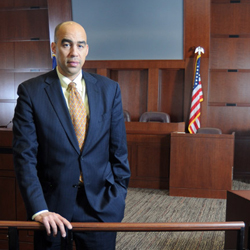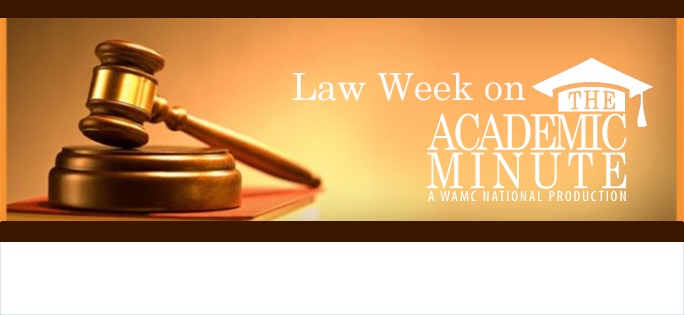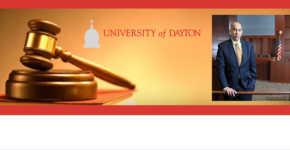 Social media has infiltrated the courtroom.
Social media has infiltrated the courtroom.
Thaddeus Hoffmeister, professor of law at the University of Dayton, examines the problem with having loose thumbs in the jury box.
As a professor of law, Thaddeus Hoffmeister teaches courses related to criminal law, technology, and the jury. He also directs the UDSL Criminal Law Clinic where his students represent indigent clients charged with criminal offenses. Prior to joining UDSL, Hoffmeister worked on Capitol Hill, clerked for a federal judge, and served in the military.
Hoffmeister has published a number of law review articles, essays, editorials and lengthier writings exploring the criminal justice system, litigation, and social media. His most recent book is entitled Social Media in the Courtroom. In addition to his academic publications, Hoffmeister edits two blogs. His first blog, Juries, which has been continuously published since 2008, focuses on the various issues that arise with jurors and the jury process. His second blog, Social Media Law, examines social media’s impact on the legal system.
Hoffmeister has been widely cited in various media outlets ranging from the Los Angeles Times to the Wall Street Journal to Wired magazine. He has also made numerous appearances on both television and radio programs.
Outside of his work in academia, Hoffmeister teaches legal seminars, serves as a mediator in federal court, and works as an Acting Judge in Dayton Municipal Court. He was a jury consultant on several high-profile cases, including U.S. v. Barry Bonds. Hoffmeister has also taught a wide range of CLE-related courses to law students, practicing attorneys, and judges.
Hoffmeister obtained a B.A. in French from Morgan State University, a J.D. from Northeastern University School of Law, and an LL.M from Georgetown University Law Center. He is admitted to practice law in California, Washington, D.C., Indiana and Ohio.

Social Media and the Courtroom
Social media posts can sink a plaintiff or defendant’s chance for a fair and impartial trial…judge…or jury…as well as influence investigations.
The impact of social media has been felt in every corner of our society, including the law.
From marketing to employment … to criminal law to copyright … and beyond … virtually every legal field has been changed by social media.
My research has found…
- A state judicial commission telling a judge his Facebook post cast reasonable doubt on his capacity to act impartially in the performance of his duties.
- A lawyer who received a 90-day suspension for unprofessional responses to Facebook messages from a client.
- In one sexual assault case in England, a juror held a poll with Facebook friends about whether she should vote guilty or not guilty.
- A judge in Arkansas overturned a death penalty case because a juror wouldn’t stop tweeting.
The biggest problem is that jurors are relying on information that’s not presented in court. If you’re a digital native, your answer to everything is, ‘I’ll Google it.’ And since MTV’s Real World, you have a generation who wants to tell the world what they’re doing at all times.
Exploring and explaining these cases will help eliminate surprises for lawyers and their clients, and provide law students with a blueprint for navigating this area of the law.
My research found allowing jurors to ask witnesses questions and improving instructions to jurors have been some of the best methods to fixing the problem. “Virtual sequestration” from electronic devices could be another tactic. It’s cheaper than the traditional physical sequestration, and it’s better for jurors than being in a hotel.
So as courts continue to strive for the whole truth and nothing but the truth, I found the best advice is … don’t look for it on your phone or computer.
